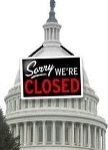
HIGHLIGHTS OF PERTINENT TAX CODE CHANGES
(TY 2018)
© 2019 Monica Haven, E.A., J.D., L.L.M.
 This year’s filing deadline for individual returns will be Monday, April 15th, 2019. Despite the ongoing government shut-down – currently in its 3rd week – the IRS has announced that it will begin accepting e-filed returns on January 28th. On the other hand, staffing as per the IRS’ Lapsed Appropriations Contingency Plan has been reduced to 12% and many customary taxpayer services have been eliminated, including the closure of all telephone helplines and taxpayer assistance centers. A continued or prolonged shut-down may further affect taxpayers.
This year’s filing deadline for individual returns will be Monday, April 15th, 2019. Despite the ongoing government shut-down – currently in its 3rd week – the IRS has announced that it will begin accepting e-filed returns on January 28th. On the other hand, staffing as per the IRS’ Lapsed Appropriations Contingency Plan has been reduced to 12% and many customary taxpayer services have been eliminated, including the closure of all telephone helplines and taxpayer assistance centers. A continued or prolonged shut-down may further affect taxpayers.
Due dates:
| Form (TY2018) | Due Date (2019) *fiscal year filers have alternate filing dates |
Extended Due Date (2019) *fiscal year filers have alternate filing dates |
| 1040 (Individual Return) | April 15 | October 15 |
| FinCEN 114 (Foreign Account Reporting) | April 15 | October 15 |
| 1065 (Partnership Return) | March 15 | September 16 |
| 1120-S (S-Corp. Return) | March 15 | September 16 |
| 1120 (Corp. Return) | April 15 | October 15 |
| 1041 (Fiduciary Return) | April 15 | October 1 |
| 990 (Non-profit Organization) | May 15 | November 15 |
Foreign Account Reporting: Taxpayers who had authority over foreign financial accounts with a combined value in excess of $10,000 at any time during 2018 must e-file FinCEN 114 by April 15th, 2019; taxpayers who fail to comply receive an automatic 6-month extension. Individual taxpayers, as well as corporations and partnerships, may also be required to file Form 8938 and attach it to their income tax return if the aggregate value of foreign financial assets exceeds $50K. NOTE: CA conforms to FATCA reporting requirements. Failure to attach the federal Form 8938 to the state return will result in a $10,000 state penalty in addition to any applicable federal penalties.
Free Application for Federal Student Aid (FAFSA): The online application is available on the Dept. of Education website. Applicants must submit 2017 tax return information for the 2019/20 academic year. NEW: The myStudentAid mobile app is now available for download and can be used to complete the FAFSA application.
Information Returns: Copies of W-2s issued to employees and 1099s issued to independent contractors must be submitted with the accompanying Forms W-3 and 1096 by January 31st, 2019. Forms 1098 issued by mortgage companies must include the mortgage origination date and outstanding loan balance, in addition to the interest paid. NOTE: Interest tracing rules have become yet more critical under the TCJA which changed the rules regarding the deductibility of mortgage and personal interest. For loans use to buy, build or substantially improve a taxpayer’s main or second home – known as acquisition debt – and newly obtained or refinanced after January 1, 2019, the interest deduction is limited to indebtedness totaling no more than $750K; interest on indebtedness exceeding  the limitation is not deductible. (The limitation remains at $1 million for grandfathered loans in existence prior to 2018.) Additionally, interest on home equity debt and lines of credit (HELOC) has been disallowed unless the loan proceeds are used to improve the personal residence which secures the debt. Interest on HELOCs that is not qualified residence interest may nevertheless be deductible elsewhere on the return if the loan proceeds are used for business-related expenditures. Prior to 2018, interest tracing rules applied only to HELOC debt in excess of $100K; now the rules apply to the HELOC in its entirety.
the limitation is not deductible. (The limitation remains at $1 million for grandfathered loans in existence prior to 2018.) Additionally, interest on home equity debt and lines of credit (HELOC) has been disallowed unless the loan proceeds are used to improve the personal residence which secures the debt. Interest on HELOCs that is not qualified residence interest may nevertheless be deductible elsewhere on the return if the loan proceeds are used for business-related expenditures. Prior to 2018, interest tracing rules applied only to HELOC debt in excess of $100K; now the rules apply to the HELOC in its entirety.
Local Business Tax: Most cities—including the City of Los Angeles – demand that businesses be registered; the attendant tax may sometimes be waived if registration forms are timely filed (February 28th, 2019 for Los Angeles). NOTE: In addition to sole proprietors and partners who clearly operate an ongoing enterprise, independent contractors (workers paid via 1099 rather than W-2) are deemed to be “in business” for licensing purposes. Links to licensing departments in Los Angeles, Culver City, West Hollywood and Santa Monica, information for small business owners and much more can be found on a specialty page of my website dedicated to business matters. TIP: Some localities may require AirBnB and other short-term rental hosts to submit Business Property Statements for the purpose of assessing an annual tax on the value of personal property and fixtures used in the business.
New Form:
 For political expediency, the TCJA mandated that the IRS reduce the 2-page format of Form 1040. The new “postcard 1040” has indeed been condensed to two half-pages (with only 23 lines instead of the original 79), but six (!) supplemental schedules are now needed to accommodate the information that no longer fits onto the shortened form.
For political expediency, the TCJA mandated that the IRS reduce the 2-page format of Form 1040. The new “postcard 1040” has indeed been condensed to two half-pages (with only 23 lines instead of the original 79), but six (!) supplemental schedules are now needed to accommodate the information that no longer fits onto the shortened form. To determine which of the news schedules you may be required to file, the IRS offers the following cheat sheet:
|
If you… |
then use… |
| have additional income, such as capital gains, unemployment compensation, award money or gambling winnings and/or have any deductions to claim, such as student loan interest, self-employment tax or educator expenses |
Schedule 1 |
| owe AMT or need to make an excess advance premium tax credit repayment |
Schedule 2 |
| can claim a non-refundable credit, such as the foreign tax credit, education credits or the general business credit |
Schedule 3 |
| owe other taxes, such as self-employment tax, household employment taxes or additional tax on IRAs or other qualified retirement plans |
Schedule 4 |
| can claim a refundable credit other than the Earned Income Credit, American Opportunity Credit additional Child Tax Credit and/or have submitted other tax payments (e.g., an amount paid with a request for an extension or excess Social Security tax withheld) |
Schedule 5 |
| have a foreign address or a third party designee |
Schedule 6 |
NOTE: The use of these schedules does not preclude the need – when applicable – for filing long-familiar schedules and forms such as Schedule A (Itemized Deductions), Schedule B (Interest & Dividend Income), Schedule C (Business Income), Schedule D (Capital Gains & Losses), Schedule E (Rental Income), amongst many others.
Non-conformity:
 As a result, if a federal law is enacted after a specified date, the change is not adopted for state purposes even if the federal change is retroactive. California currently conforms to federal law as of January 1, 2015. Since most federal changes as per the TCJA will not apply to California, state filers should anticipate increased filing complexity which will include a new 3-page Schedule CA designed to accommodate adjustments needed to reconcile differences between federal and state tax law.
As a result, if a federal law is enacted after a specified date, the change is not adopted for state purposes even if the federal change is retroactive. California currently conforms to federal law as of January 1, 2015. Since most federal changes as per the TCJA will not apply to California, state filers should anticipate increased filing complexity which will include a new 3-page Schedule CA designed to accommodate adjustments needed to reconcile differences between federal and state tax law.[≠] indicates CA non-conformity with federal law.
Standard Deduction: Because the federal Standard Deduction has been increased to $12K (Single) and $24K (MFJ), many taxpayers who previously itemized may choose not to file Schedule A for 2018. While that may make things simpler for federal return preparation, it will complicate matters for taxpayers seeking to minimize their state tax liability by claiming still-allowable state deductions [≠] for gambling losses, casualty losses, excess property taxes and mortgage interest, unreimbursed employee business expenses, tax preparation, legal and investment advisory fees, amongst many other differences.
Medical Expenses: The TCJA retroactively reduced the deduction threshold for 2018; as a result, the aggregate of all medical expenses need only exceed 7.5% of Adjusted Gross Income (AGI). Since California did not conform to the original federal threshold increase, state taxpayers may now enjoy rare (and temporary) conformity. However, the federal threshold will increase to 10% for all but seniors over age 65 in 2019, but [≠] will remain at 7.5% of AGI in California.
State & Local Taxes: The federal deduction for the aggregate of all state and local income taxes and property taxes has been limited to $10,000 on individual and fiduciary returns, although state and local taxes paid while carrying on a trade or business or rental activity remain fully deductible. NOTE: Property taxes paid on a decedent’s home during the estate administration period is deemed deductible investment interest. As before, [≠] California prohibits deductions for state income and sales taxes but allows a deduction for real and personal property taxes in excess of $10K. Based on the Supreme Court decision in Wayfair, Inc. v South Dakota, California will impose sales and use tax on retailers who have an “economic nexus” with the state beginning April 1, 2019. Thus, retailers who had sales of at least $100K or made more than 200 transactions during the prior year will be required to register with the California Department of Tax and Fee Administration and remit sales and use taxes, even if the retailer has no physical presence within the state.
Mortgage Interest: The federal deduction is limited to interest accrued on a maximum of $750K acquisition debt related to a 1st or 2nd home purchased after December 15, 2017; whereas the state deduction still allows for interest deduction on indebtedness up to $1 million [≠]. TCJA has repealed the federal deduction for interest on all home equity debt; California still allows an interest deduction on HELOCs up to $100K [≠].
Charitable Contributions: Taxpayers who itemize may claim deductions for documented contributions to qualified donee organizations up to the newly increased AGI limitation of 60%. Excess contributions may be carried-forward and deducted on future returns for up to 5 years. California’s limitation [≠] remains at 50% of AGI.
Casualty Loss: Losses due to fire, flood or other natural disaster are no longer federally deductible unless incurred in a presidentially-declared disaster zone. California continues to [≠] allow a deduction for losses if either the President or Governor declares the disaster.
Miscellaneous Deductions: Tax preparation, legal and investment advisory fees, as well as unreimbursed employee business expenses are no longer federally deductible but [≠] remain deductible for state tax purposes.
Phase-outs: The reductions of federal itemized deductions (and personal exemptions) based on AGI have been eliminated but [≠] remain in place for California.
TCJA Changes:
Corporate Tax:  The graduated rates previously in effect have been eliminated and the corporate tax rate has been set at a flat rate of 21%. The corporate Alternative Minimum Tax (AMT) has been repealed.
The graduated rates previously in effect have been eliminated and the corporate tax rate has been set at a flat rate of 21%. The corporate Alternative Minimum Tax (AMT) has been repealed.
TIP: Before you rush to incorporate or convert your existing entity to a C-Corp, take a look at the analysis of pros and cons evaluated by Forbes:
No Benefit to Incorporation for: Sole proprietor who files Schedule C, rental property owner who files Schedule E or farmer who files Schedule F since the deductibility of business expenses has not been affected by tax reform.
Possible Benefit to Incorporation for: Employees previously eligible to deduct unreimbursed employee expenses on Schedule A may benefit. NOTE: Lost deductions merely reduce taxable income but do not, in fact, reduce your tax liability on a dollar-for-dollar basis. Additionally, your employer may not agree to pay your salary to a corporate entity in lieu of placing you on payroll. Lastly, if you are not treated as an employee, you are deemed to be an independent contractor subject to local business registration requirements and business taxes, as well as the self-employment tax. That means that you'll have to pick up the 2nd half of the FICA taxes previously paid by your employer; at a minimum, that's an additional cost of 7.65%. Add to that, you may lose certain fringe benefits such as employer-provided health insurance, parking, employer contributions to retirement plans, amongst other perks. TIP: Run the numbers before making a decision.
Possible Benefit to Incorporation for: A pass-through entity may benefit if operating a specified service business and taxable income exceeds the threshold amounts [see below]; however, taxpayers may be subject to double taxation on business profits (at the 21% flat corporate rate) as well as on dividends and distributions (at the applicable individual rate). Additionally, you'll be subject to the legal costs of establishing the new business entity, increased compliance issues, and the minimum franchise tax imposed by California.
As always there are no easy answers and each situation has to be independently evaluated. The selection of an appropriate business entity involves tax, legal and many other aspects. TIP: While I can provide you with tax advice, I strongly urge you to consult a competent business attorney when researching your options.
Pass-through Entity Income: Beginning in 2018, taxpayers may deduct up to 20% of their domestic net qualified business income (QBI) which includes income from services and rental real estate but not wage income. The deduction is available to sole proprietorships and all pass-through business entities but not C-Corps. The deduction may not be claimed above-the-line to reduce AGI, nor may it be used to reduce the self-employment tax.
 The Treasury has released 184 pages of proposed regulations regarding the IRC applicable §199A and still QBI remains an enigma. QBI includes trade or business income from self-employment, S-Corps, Partnerships, LLCs and trusts but does not include wages, reasonable compensation paid by S-Corps, guaranteed payments to partners, investment income or income from publicly-traded partnerships. NOTE: As per the draft version of IRS Publication 535, the IRS has stated that “the ownership and rental of real property doesn't, as a matter of law, constitute a trade or business, and the issue is ultimately one of fact in which the scope of the taxpayer's activities in connection with the property must be so extensive as to give rise to the stature of a trade or business." Therefore, rental real estate does not automatically qualify for the §199A deduction; instead, the facts and circumstances of each taxpayer’s situation will determine if the activity can be classified as QBI.
The Treasury has released 184 pages of proposed regulations regarding the IRC applicable §199A and still QBI remains an enigma. QBI includes trade or business income from self-employment, S-Corps, Partnerships, LLCs and trusts but does not include wages, reasonable compensation paid by S-Corps, guaranteed payments to partners, investment income or income from publicly-traded partnerships. NOTE: As per the draft version of IRS Publication 535, the IRS has stated that “the ownership and rental of real property doesn't, as a matter of law, constitute a trade or business, and the issue is ultimately one of fact in which the scope of the taxpayer's activities in connection with the property must be so extensive as to give rise to the stature of a trade or business." Therefore, rental real estate does not automatically qualify for the §199A deduction; instead, the facts and circumstances of each taxpayer’s situation will determine if the activity can be classified as QBI.
The §199A deduction is subject to various phase-out rules depending on whether the income is derived from a specified service business (e.g., healthcare providers, accountants, investment advisors, attorneys, and other consultants) or another source. Specified service businesses may lose a portion of the allowable deduction if taxable income falls within the ranges of $157K – 207.5K (Single) or $315K – 415K (MFJ) and lose the deduction altogether if taxable income exceeds the upper-most thresholds. In contrast, non-specified businesses may still benefit from the deduction if the thresholds are exceeded, but the allowable deduction for these high-income earners will be limited by a complex computation based on wage income paid to employees and the unadjusted basis of the depreciable property held by the business. While nightmarishly complex, potential tax savings for taxpayers in the top income bracket eligible for the full deduction could serve to reduce the effective tax rate from 37 to 29.6%.
Meals & Entertainment: The 50% deduction for business meals remains, presuming that the outlays are “ordinary and necessary” and “not lavish or extravagant,” and that the taxpayer is present with a current or potential business customer when the meal is consumed. On the other hand, the TCJA eliminated the federal deduction for most business entertainment expenses, such as sporting events and theater tickets as well as meals consumed in conjunction with entertainment that are not purchased separately. NOTE: The cost of office parties provided to business employees remains 100% deductible. California continues to [≠] allow the deduction for entertainment expenses as before.
Excess Business Loss: Net business losses in excess of $250K (Single) or $500K (MFJ) are no longer deductible by non-corporate taxpayers but may instead be carried-forward and treated as a federal Net Operating Loss (NOL) in the following tax year. California does not limit the deduction of excess business losses which may [≠] continue to be used to offset income from other sources.
Alimony: Amounts paid to (or received from) a former spouse as per divorce decrees executed after 2018 will no longer be deductible to the payer (or taxable to the payee) for federal purposes but [≠] remains deductible (taxable) for state purposes.
Moving Expenses: The federal deduction for moving expenses has been eliminated but California continues to [≠] allow the deduction unless the taxpayer moves out of state and does not receive any California-source compensation after the move.
Kiddie Tax: The tax on a child’s unearned income has been de-coupled from the parental return and will now be assessed at the rates applicable to federal estate and trust returns, although parents may under certain circumstances elect to include their child’s income on their own return and pay the resulting tax. TIP: The election may be favorable if the child’s income exceeds $12.5K, the break-point at which it will be taxed at a rate of 37% since the parental brackets, by contrast, do not reach the same rate until income exceeds $500K. California will continue to tax the child’s income [≠] at parental rates regardless of the federal election.
Tax Saving Strategies:
Qualified Charitable Distribution (QCD): Seniors over the age of 70½ may elect to make a direct IRA-to-charity transfer, thereby avoiding the inclusion of their Required Minimum Distribution (RMD) in taxable income, minimizing the taxability of Social Security benefits and potentially avoiding Medicare Surtaxes. QCDs may be particularly attractive to those taxpayers who no longer itemize deductions: Contributions that had once been deductible on Schedule A as long as the aggregate of all itemized deductions exceeded the relatively low thresholds of roughly $6K (Single) or $12K (MFJ), will be “lost” if the taxpayer no longer itemizes now that the Standard Deduction has been doubled under the TCJA.
Home Office Deduction: Under the optional safe harbor method, taxpayers may claim a deduction equal to $5/ft² (maximum $1,500)  in lieu of separately detailing allowable expenses and depreciation presuming, of course, that they have an area in the home that is used “regularly and exclusively” for business. Although sole proprietors may still claim the deduction, employees may no longer claim a federal deduction for unreimbursed expenses, including mileage, travel, entertainment, home office and union dues. California continues to [≠] allow these deductions for employees subject to a 2% AGI limitation.
in lieu of separately detailing allowable expenses and depreciation presuming, of course, that they have an area in the home that is used “regularly and exclusively” for business. Although sole proprietors may still claim the deduction, employees may no longer claim a federal deduction for unreimbursed expenses, including mileage, travel, entertainment, home office and union dues. California continues to [≠] allow these deductions for employees subject to a 2% AGI limitation.
Repair Regulations: In an attempt to standardize and simplify taxpayer reporting, the IRS introduced reporting requirements for business and rental property repairs. The general rule holds that all tangible property purchased for use in a trade or business – except inventory – must be capitalized, except costs for (a) materials and supplies under $200, (b) routine maintenance incurred to keep property in its ordinarily operating condition, (c) de minimis outlays up to $2,500 for which taxpayer makes an affirmative Safe Harbor election, and (d) maintenance and repair of buildings owned by small taxpayers with outlays of less than $10K. If costs are expected to exceed the threshold limits, taxpayers may wish to split multiple projects over two calendar years to avoid the capitalization requirement.
Unrelated Business Income (UBI): Taxpayers who have used retirement account funds to purchase a limited partnership may be subject to additional reporting. While investment income earned inside an IRA account is generally not reportable until assets are distributed at retirement, UBI in excess of $1,000/year is reportable and taxable. Failure to File Form 990-T may result in the disqualification of an otherwise qualified retirement plan resulting in a deemed distribution of a lump-sum that is fully taxable. While the IRA trustee bears the responsibility of filing the requisite forms on your behalf, it is your responsibility to ensure that such filings have in fact been submitted to the IRS.
Estate & Gift Taxes: The TCJA doubled the lifetime exemption for estate and gift taxation through 2025; the inflation-adjusted amount in 2019 is $11.4 million. Wealthy taxpayers may reduce their taxable estates by making lifetime gifts up to the applicable threshold amounts but are protected from potential recapture when the exemption reverts back to $5 million in 2026 by the anti-clawback provisions of the Code. NOTE: The annual gift tax exclusion has been raised to $15,000; the unified tax rate remains 40%.
Trusts: Although estate tax liabilities may no longer be a primary motivating factor to establish trusts, other benefits remain valid: Trusts may be used to avoid probate, preserve assets for minors, establish separate property, protect business assets, prevent MediCal estate recovery and arrange a conservatorship for the incapacitated, amongst a myriad of examples. TIP: As each situation is unique, clients are encouraged to seek personalized legal guidance.
Affordable Care Act (ACA):
 All previously enacted provisions of the ACA remain in effect for the 2018. Therefore, affected taxpayers should be aware that they may be subject to various penalties and taxes:
All previously enacted provisions of the ACA remain in effect for the 2018. Therefore, affected taxpayers should be aware that they may be subject to various penalties and taxes:
Shared Responsibility Payment: All individuals and their family members are required to have medical insurance; which must be verified and reported on the taxpayer’s income tax return. If you obtained coverage through the Health Insurance Marketplace, you will receive Form 1095-A documenting coverage maintained during each month of the prior year (2018). If you purchased insurance directly from an insurance company, you will receive Form 1095-B; if you were insured through an employer plan, you will receive Form 1095-C. These forms must be provided to you on or before March 4th. Since verification of Minimum Essential Coverage is crucial, the filing of your tax return may have to be postponed until Form 1095 is received, even if all remaining data is otherwise available. In 2018, failure to verify coverage may cost you a penalty equal to the greater of $695/adult ($347.50/child) or 2.5% of your yearly household income, limited to a family maximum of $2,085. NOTE: This penalty has been repealed for 2019 and beyond.
Repayment of Premium Tax Credit: Some taxpayers may be required to refund advance credits received during 2018 to subsidize the cost of monthly premiums for insurance obtained through the Marketplace if actual income reported on the tax return exceeds the amount of income used to determine the premium credit when the insurance was purchased. NOTE: Even taxpayers who otherwise have no filing requirement must file a tax return to reconcile the advance credit.
Medicare Surtaxes: The taxes on Earned Income (0.9%) and Net Investment Income (3.8%) remain in effect.
Crystal Ball
 The Committee further projected that the §199A deduction will be claimed on 17.4 million returns in 2018, totaling $40.2 billion in deductions. Lastly, the Committee estimated that only 18 million returns will include itemized deductions in 2018, compared to 46.5 million returns in 2017. It will be interesting to see the actual numbers at the end of the current filing season and, particularly, to note how each of us were personally affected by the TCJA. We already know that our filings will hardly be simpler, but will our individual federal and state liabilities be reduced or increased???
The Committee further projected that the §199A deduction will be claimed on 17.4 million returns in 2018, totaling $40.2 billion in deductions. Lastly, the Committee estimated that only 18 million returns will include itemized deductions in 2018, compared to 46.5 million returns in 2017. It will be interesting to see the actual numbers at the end of the current filing season and, particularly, to note how each of us were personally affected by the TCJA. We already know that our filings will hardly be simpler, but will our individual federal and state liabilities be reduced or increased???